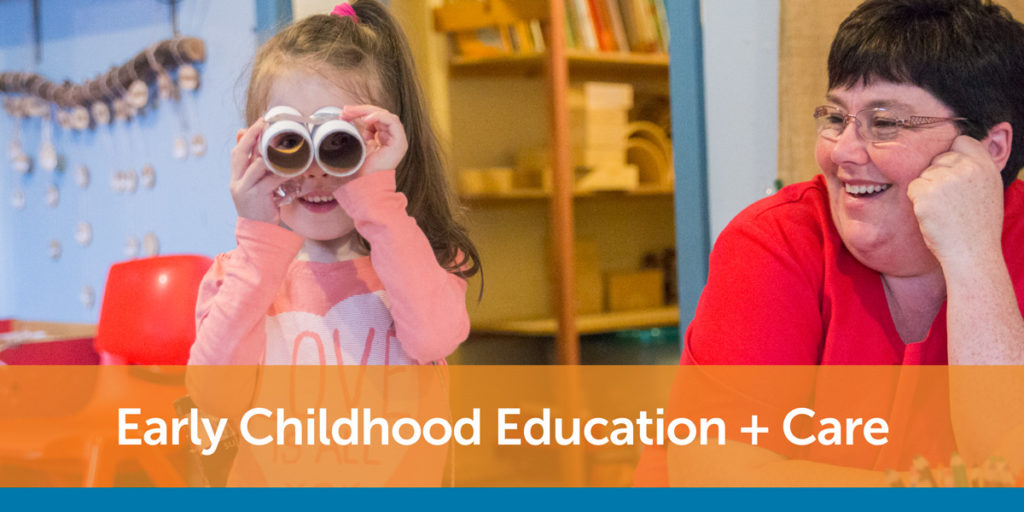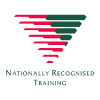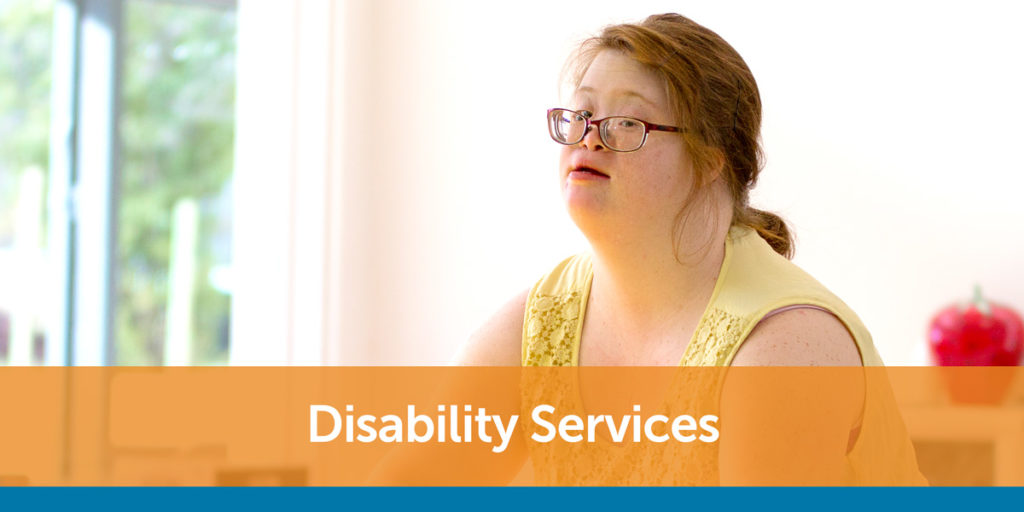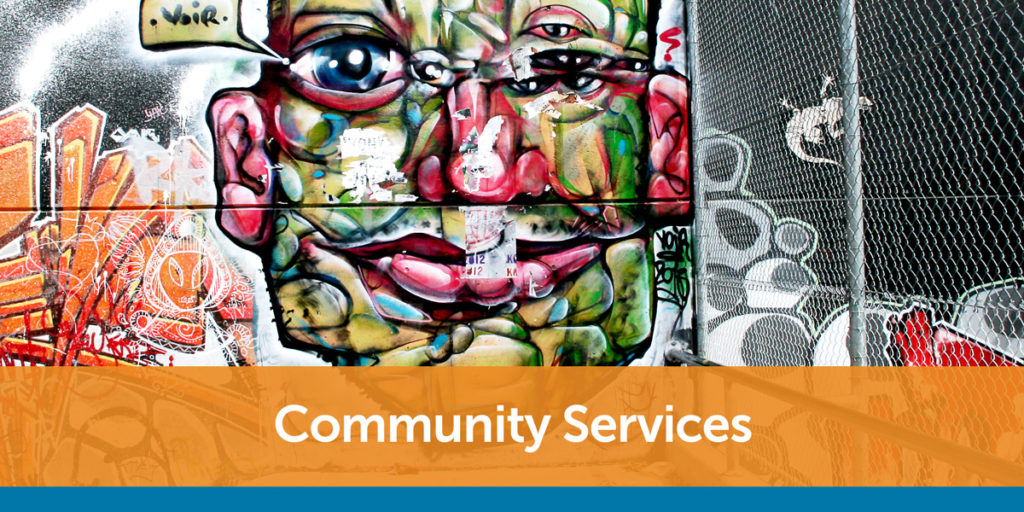Anglicare College offers a diverse range of courses to people in the Community Services sector. Our courses include Early Childhood Education and Care (Diploma & Certificate III), Aged Care, Disability Services, First Aid and individual Skill Sets where relevant.
Our Courses

Certificate III in Early Childhood Education and Care (CHC30121)
This qualification reflects the role of educators in early childhood education and care who work in regulated children’s education and care services in Australia. They support children’s wellbeing, and development in the context of an approved learning framework. Educators use a range of well-developed skills and knowledge using discretion and judgment when carrying out their work in the context of established policies and procedures. They may work independently or under the guidance of others, though in some contexts that guidance may not be on-site.
Early childhood educators work in long day care centres, family day care, pre-schools or kindergartens.
To achieve this qualification, the individual must have completed a total of least 160 hours of work in a regulated children’s education and care service in Australia as detailed in the Assessment Requirements of units of competency. The total number of hours may be applied collectively across all units of competency that include the requirement for workplace hours.

Diploma in Early Childhood Education and Care (CHC50121)
This qualification reflects the role of educators in early childhood education and care who work in regulated children’s education and care services in Australia. Educators at this level are responsible for designing and implementing curriculum that meets the requirements of an approved learning framework and for maintaining compliance in other areas of service operations. They use specialised knowledge and analyse and apply theoretical concepts to diverse work situations. They may have responsibility for supervision of volunteers or other educators.
Early childhood educators work in long day care centres, family day care, pre-schools or kindergartens.
To achieve this qualification, the individual must have completed a total of least 280 hours of work in a regulated children’s education and care service in Australia as detailed in the Assessment Requirements of units of competency. The total number of hours may be applied collectively across all units of competency that include the requirement for workplace hours.


Certificate III in Individual Support (Aged Care) (CHC33021)
This qualification reflects the role of workers in the community and/or residential setting who follow an individualised plan to provide person-centred care to people, requiring assistance due to ageing, disability or some other reason. Work involves using discretion and judgement in relation to individual support as well as taking responsibility for own outputs. Workers use a variety of practical, technical and procedural practices, as well as theoretical knowledge of concepts and practices required to provide quality person-centred care and support.
This qualification is considered an entry-level qualification for direct care workers. It is also an excellent way of reintroducing long-standing staff members back into education and formerly recognising their expertise.
Students can specialise in aged care, home and community care or disability services.
The course is offered via classroom delivery, distance or online, by qualified Anglicare educators who aim to provide a high standard of training for all trainees. Classes are one day per week and include 2 practical skills days.
To qualify for the Certificate III in Individual Support, students must complete:
- 13 units of competency – 7 core units and 6 electives,
- a minimum of 120 workplace hours in a registered care provider service (depending on specialisation chosen),
- homework and assessment tasks (3-4 hours per unit),
- workplace assessments & skills audits.
Please see schedule of fees for more information.
Traineeships or other funding may be available for some participants on application & assessment.
Smart & Skilled funding may be available for some participants residing in NSW – visit the Smart & Skilled website to check eligibility.
*Individual units are offered for those wishing to upgrade or obtain new skills. A Statement of Attainment will be issued upon completion of all required assessments.


Certificate III in Individual Support (Disability) (CHC33021)
This qualification reflects the role of individuals in the community, home or residential care setting who work under supervision and delegation as a part of a multi-disciplinary team, following an individualised plan to provide person-centred support to people who may require support due to ageing, disability or some other reason.
These individuals take responsibility for their own outputs within the scope of their job role and delegation. Workers have a range of factual, technical and procedural knowledge, as well as some theoretical knowledge of the concepts and practices required to provide person-centred support.
The skills in this qualification must be applied in accordance with Commonwealth and State/Territory legislation, Australian standards and industry codes of practice.
To achieve this qualification, the candidate must have completed at least 120 hours of work as detailed in the Assessment Requirements of the units of competency.
To qualify for the Certificate III in Individual Support, students must complete:
- 15 units of competency – 9 core units and 6 electives,
- a minimum of 120 workplace hours in a registered care provider service (depending on specialisation chosen),
- homework and assessment tasks (3-4 hours per unit),
- workplace assessments & skills audits.
Please see schedule of fees for more information.
Traineeships or other funding may be available for some participants on application & assessment.
Smart & Skilled funding may be available for some participants residing in NSW – visit the Smart & Skilled website to check eligibility.
*Individual units are offered for those wishing to upgrade or obtain new skills. A Statement of Attainment will be issued upon completion of all required assessments.


Diploma of Community Services (CHC52015)
This qualification reflects the roles of community services, case management and social housing workers involved in the managing, coordinating and/or delivery of person-centred services to individuals, groups and communities.
At this level, you will obtain specialised skills in community services and work autonomously under broad directions from senior management, providing direct support to individuals or groups of individuals. You may also have responsibility for the supervision of other workers and volunteers and/or case management; program coordination or the development of new business opportunities.
Graduates at this level will have a broad range of cognitive, technical and communication skills to select and apply methods and technologies to:
- analyse information to complete a range of activities
- provide and transmit solutions to sometimes complex problems
- transmit information and skills to others
Subsidised funding maybe available to some eligible applicants, via NSW initiative – Smart and Skilled


